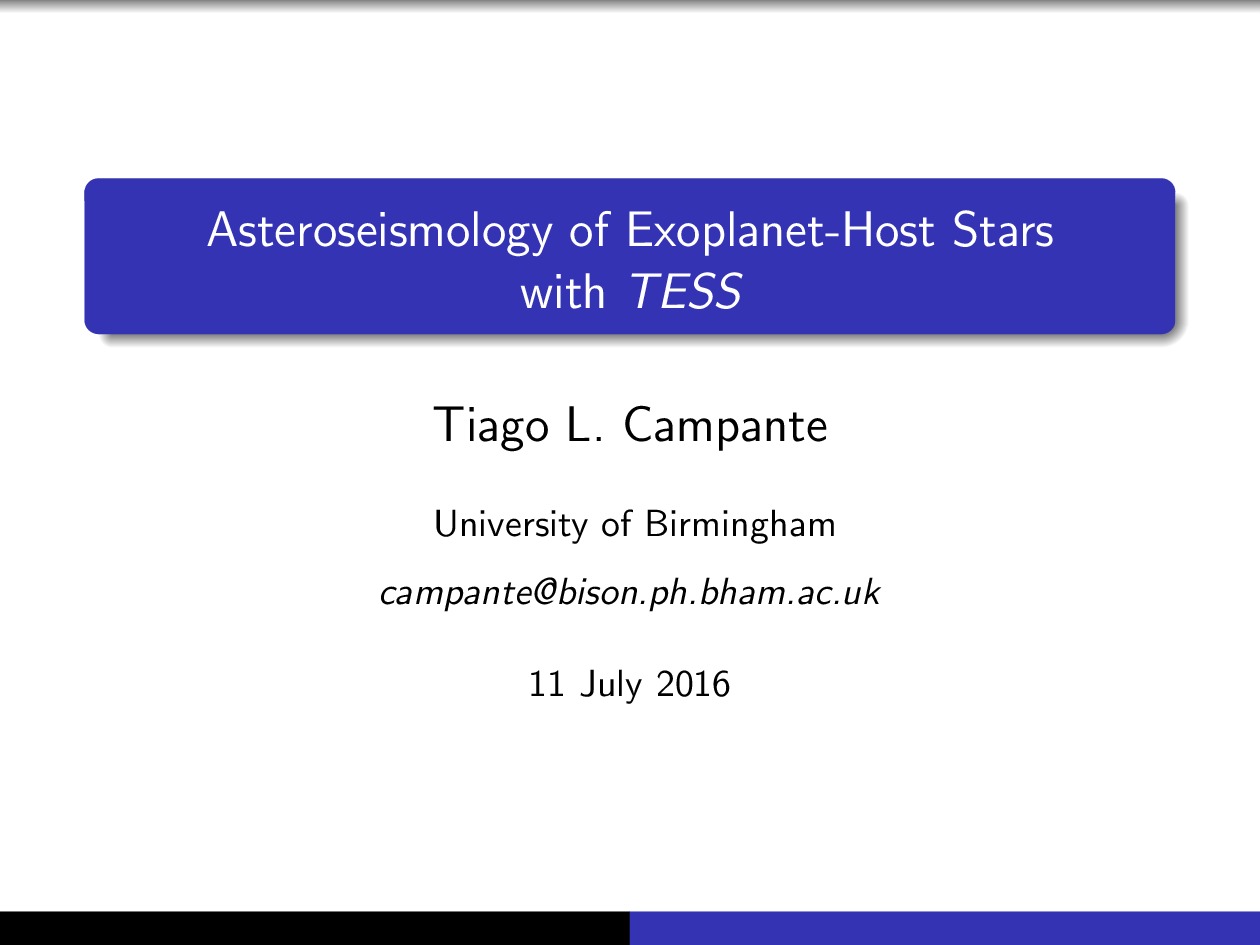Date of upload:
14.07.2016
Abstract:
New insights on stellar evolution and stellar interiors physics are being made possible by asteroseismology. Throughout the course of the Kepler mission, asteroseismology has also played an important role in the characterization of exoplanet-host stars and their planetary systems. The upcoming NASA's Transiting Exoplanet Survey Satellite (TESS) will be performing a wide-field survey for planets that transit bright nearby stars. In addition, its excellent photometric precision, combined with its fine time sampling and long intervals of uninterrupted observations, will enable asteroseismology of solar-type and red-giant stars. We developed a simple test to estimate the detectability of solar-like oscillations in TESS photometry of any given star. Based on an all-sky stellar and planetary synthetic population, we go on to predict the asteroseismic yield of the TESS mission, placing emphasis on the yield of exoplanet-host stars for which we expect to detect solar-like oscillations. This is done for both the cohort of target stars (observed at a 2-min cadence) and the cohort of full-frame-image stars (observed at a 30-min cadence). A similar exercise is also conducted based on a compilation of known host stars. With several tens of TESS target hosts (mainly F dwarfs and subgiant stars) and up to 200 full-frame-image hosts (at the low-luminosity end of the red-giant branch) for which asteroseismology will become possible, not to mention the over 100 known host stars, this equates to a threefold improvement in the asteroseismic yield of exoplanet-host stars when compared to Kepler's.
